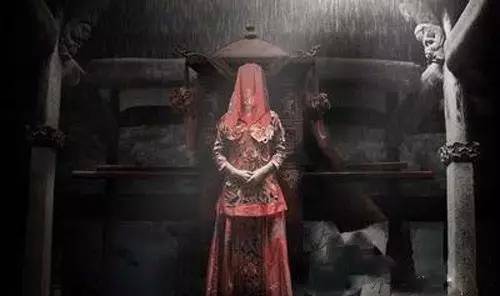Posthumous marriage makes female corpses a commodity
- By Jason Lee
 0 Comment(s)
0 Comment(s) Print
Print E-mail China.org.cn, May 19, 2016
E-mail China.org.cn, May 19, 2016
Posthumous marriage prevails in Linfen, north China's Shanxi Province, according to an in-depth report by China Newsweek published on May 12.
 |
|
Posthumous marriage prevails in Linfen, north China’s Shanxi Province, according to an in-depth report by China Newsweek published on May 12. |
After a single man dies, his parents will look for the body of a single woman to bury together with their son and hold a posthumous marriage ceremony with the woman's parents. The man's parents will pay some money to the woman's parents as gift. After that, the two families are brought into a relationship through their dead children.
However, some people have found a business opportunity in this old tradition. The bodies of unmarried women have become a commodity for agents and even tomb robbers.
Wang Yong, an employee at a clinic in Hongtong County in Linfen, thinks it is wasteful to cremate female corpses. The clinic's mortuary rarely accommodates female corpses, especially young ones. Many families queue up to bid for the body of a critically ill young woman in the hospital. "Before her death, the price is already settled between the woman's families and the buyers," Wang said. "The doctors and nurses can also profit from the deal as a body agent."
The price for a fresh young woman's corpse can hit more than 200,000 yuan ($31,000), about 20 times the annual average disposable income in local villages. And the agency fee ranges from hundreds of yuan to thousands of yuan.
Hu Qinghua's son died three years ago. She bought a woman's corpse with 180,000 yuan. "I saw the young woman's picture. She looked nice. She was the same age as my son. They were a good match," Hu said.
After a feast attended by the two families, the young man's body was unearthed and the matchmaker stuffed his decayed eyes, ears, nose and mouth with rice and flour. And then the two corpses were buried together in the man's ancestral grave.
Hu became the envy of her neighbors because she managed to buy a fresh young woman's body at a low price. In the market, the buyers cannot even buy a woman's skeleton with 50,000 yuan. If the female corpse comes from a rich family, the price is much higher.
Shanxi is an important coal production base for China. Some young men die in mining and traffic accidents before marriage. Their parents can spend many years looking for a female corpse. According to their belief, dead people do not age. If a man dies at 18, he will be always 18 in his posthumous marriage.
The parents believe that after their sons and daughters' marriage, even if it is a posthumous marriage, they can fulfill their responsibilities. And if a dead person does not marry, he or she will become a ghost and curse the family. And if they are happily married, they will protect the family. The posthumous marriage has more than 2,000 years' history in Linfen.
But Hu has new responsibilities now. She must watch over the tomb to prevent someone from stealing the expensive female body. Some families build cement tombs to protect the bodies.
In Hongtong's street market, some vendors openly sell piles of human bones. If they can prove they are the bones of woman, the price of a whole skeleton is about 50,000 yuan.
The buyers know the skeletons are stolen from nearby tombs. But they have no choice if they cannot afford a fresh body.
The trade is illegal. But the punishment is light. Three years' imprisonment is the heaviest penalty for the tomb robbers and body agents according to Chinese law.






Go to Forum >>0 Comment(s)